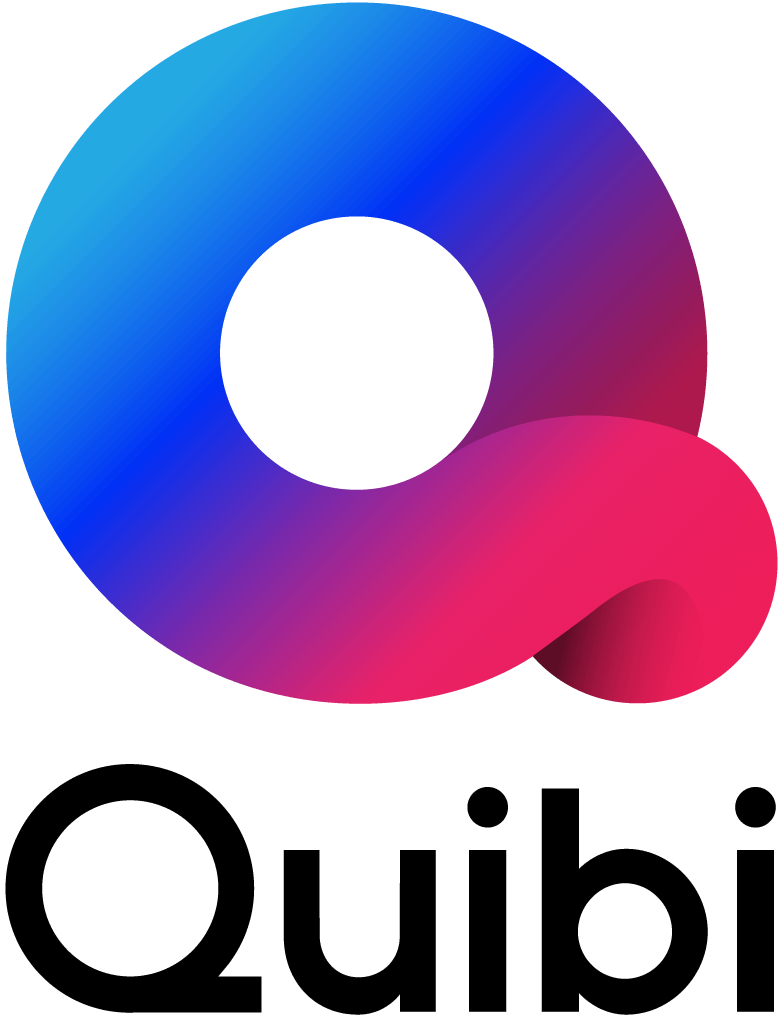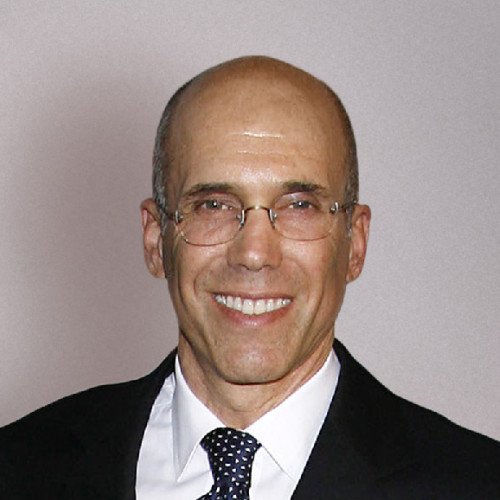Can short form video sustain a new platform? Quibi believes it can.

Quibi hopes it to use its superstar talent to compete with YouTube and Netflix.

Quibi will soon be launching their innovative new platform to deliver high quality short form video content to users. In July of 2018 the Quibi team announced they raised a one billion dollar series A round that included Alibaba and all 6 (now 5) major Hollywood studios as investors [2]. This ambitious blending of Silicon Valley and Hollywood is being led by two of the most successful members of each community with Meg Whitman [CEO Ebay 1998-2008, CEO HP/HPE 2011-2018][3] spearheading the technology and Jeffrey Katzenberg [Chair The Walt Disney Studios 1984-1994, Co-Founder & Chairman of Dreamworks SKG/Dreamworks Animation 1994-2017][4] bringing a career of media expertise.


Quibi will be a short form content video platform with several key differentiators from other digital video companies. Like YouTube, Quibi will be a platform that hopes to connect an ever growing user base with many producers of content and a network of advertisers in a virtuous cycle that makes the platform more valuable to each side with each additional participant. Quibi intends to differentiate itself from YouTube by supporting a much higher quality product than currently exists on the YouTube platform (up to $6 million per episode [5]). On the other end of the spectrum they intend to differentiate themselves from Netflix by focusing on the building of a multi-sided platform rather than simply controlling and providing content.
Some innovative pieces of Quibi’s planned model:
- Contrary to the current trend in media Quibi will not own content in perpetuity, for all content developed for the Quibi platform the rights will revert to the content creator after a set period of time (7 years for the original content, 2 years for a repackaging of the content) [2]
- Quibi is putting a large emphasis on developing a completely integrated technology stack for the new native short form video player, believing that there is room to distinguish themselves on user experience from the current standards in digital viewing
- Quibi is willing to invest a large amount of money to generate “superstar” backed content with people from Guillermo Del Toro to Steph Curry signed on to create content, this is necessitated by the challenge that there is no existing library of content to purchase [5]
Quibi is also taking an interesting approach to value capture. While the team has not confirmed the exact details of a value capture plan, Quibi will launch with a two tier pricing structure to consumers. Both tiers will involve a monthly fee (most likely lower than the $9.99 benchmark Netflix has established) with one tier servings ads and one tier being advertisement free [2]. This is a particularly interesting choice given that a paid subscription may limit their ability to quickly add users and increase the overall value of the platform. This decision will also require Quibi to continue to deliver content their users want to view, as Quibi will only own content rights for a limited time period combined with a monthly fee driving a higher risk of churn (relative to YouTube). These two risk factors could create a negatively reinforcing cycle that may quickly damage the platform.
Quibi is an interesting, and expensive, bet on a content platform that will have to compete with very entrenched players; however, their content creator friendly strategy, technology pedigree, ability to garner Hollywood support, and extremely successful founders will certainly make Quibi an innovative platform to watch.
References
[1] “Quibi”. 2019. Quibi.Com. https://www.quibi.com/. Accessed February 18, 2019.
[2] Todd Spangler. 2019. “Jeffrey Katzenberg’S ‘Newtv’ Startup Closes $1 Billion, All Major Studios Among Investors”. Variety. https://variety.com/2018/digital/news/newtv-jeffrey-katzenberg-meg-whitman-1-billion-funding-1202897529/. Accessed February 18, 2019.
[3] https://www.linkedin.com/in/megwhitman/. Accessed February 18, 2019.
[4] https://www.linkedin.com/in/jeffrey-katzenberg-4b3b47123/. Accessed February 18, 2019.
[5] “Still A Year Away From Launch, Meg Whitman And Jeffrey Katzenberg’S Quibi Keeps Adding Talent”. 2019. Techcrunch. https://techcrunch.com/2018/12/05/still-a-year-away-from-launch-meg-whitman-and-jeffrey-katzenbergs-quibi-keeps-adding-talent/. Accessed February 18, 2019.
“Inside Jeffrey Katzenberg’s Plan To Spend Up To $1B By 2025 On Programming For Quibi – Digiday”. 2019. Digiday. https://digiday.com/media/inside-jeffrey-katzenbergs-pitch-to-investors-on-mobile-video-service-quibi/. Accessed February 18, 2019.



Really interesting post about an upcoming platform in a competitive industry! You highlight that some of the critical differentiators for Quibi are their focus on high quality and short form content and the potential risk factors around their model. In addition I would add that their focus on mobile seems to be both a differentiator and a risk. Alan Wolk argued in Forbes (link below) that Quibi is betting on users watching these videos on mobile devices during small chunks of extra time, so one key question to be proved here is if users are willing to pay for high quality content to watch on a small mobile device during a commute or other free time. If users want to consume high quality media on TVs instead of mobile Quibi will need to pivot to offer a premium viewing experience on larger screens as well, or risk exacerbating the churn you mentioned above.
https://www.forbes.com/sites/alanwolk/2018/12/27/quibi-should-be-quite-successful-just-not-on-the-medium-theyre-expecting/#1d135d4243c0
Very interesting point Maren, it’s a huge investment without actually verifying the required user behaviour. One more risk to add for the list. I wonder if the platform will be able to make the pivot you suggest may be necessary, depending on how specialized they develop the content for a small screen it may not be possible.
Really interesting! Curious whether you see Quibi as a two sided platform or just a platform for content with strong barriers to entry. Also, does the value of the differentiation on quality outweigh the network effects of a platform like YouTube?
Jillian,
Hard to know for sure before they launch, but given the information I’ve heard about Quibi I see them as two-sided platform for two reasons:
1) Unlike Netflix they won’t own the content forever, they are trying to match producers with users while Quibi is serving the content. So I see them as trying to reduce the search costs between the two sides, as opposed to purchasing an input and repackaging it for a user like Netflix.
2) They’ve shown an interest in working with nearly any production company in the world which will mean many players on the second side of the platform (as opposed to say iTunes which essentially only works with the few major music labels).
To your second question, I think that’s the key product market fit question. I don’t see Quibi realistically dethroning YouTube, the question to me is if user generated short form content and professional short form content will be two different markets that tip seperately, or if Quibi will forever be directly competing with YouTube (a battle I would not personally bet on them winning).
It seems that Quibi is trying more to add to viewers’ choices than cannibalize existing content / compete directly with Netflix and Amazon. Thus, the platform will need to invest a lot of money in new content, especially considering that “the average price to produce a drama has almost doubled from two or three years ago to more than $5 million an episode, according to Bloomberg Intelligence”. (1) So, I strongly believe that Quibi is an extremely risky bet or “It’s an asymmetrical risk and reward” on mobile video considering the current players, big investments, among other arguments discussed above. However, I’m pretty sure that is difficult for us to have a clear “big picture” of Quibi given that big/powerful investors are supporting this new tech endeavor. So, what are the things that we are missing in the puzzle? Why investors are so confident about this new venture?
(1) https://www.bloomberg.com/news/articles/2018-12-20/hollywood-makes-a-big-bet-on-jeffrey-katzenberg-s-quibi
Great write up! I’ve heard that Meg Whitman has compared Quibi content to a Dan Brown book, where each chapter takes a few minutes to read, but if you have time you can get lost reading several in one sitting. I think it’s an interesting concept, but I’m skeptical that that it will gain a large of share of viewer phone usage without something revolutionary. Hopefully their new short form video player can make the user experience much better than anything else out there.